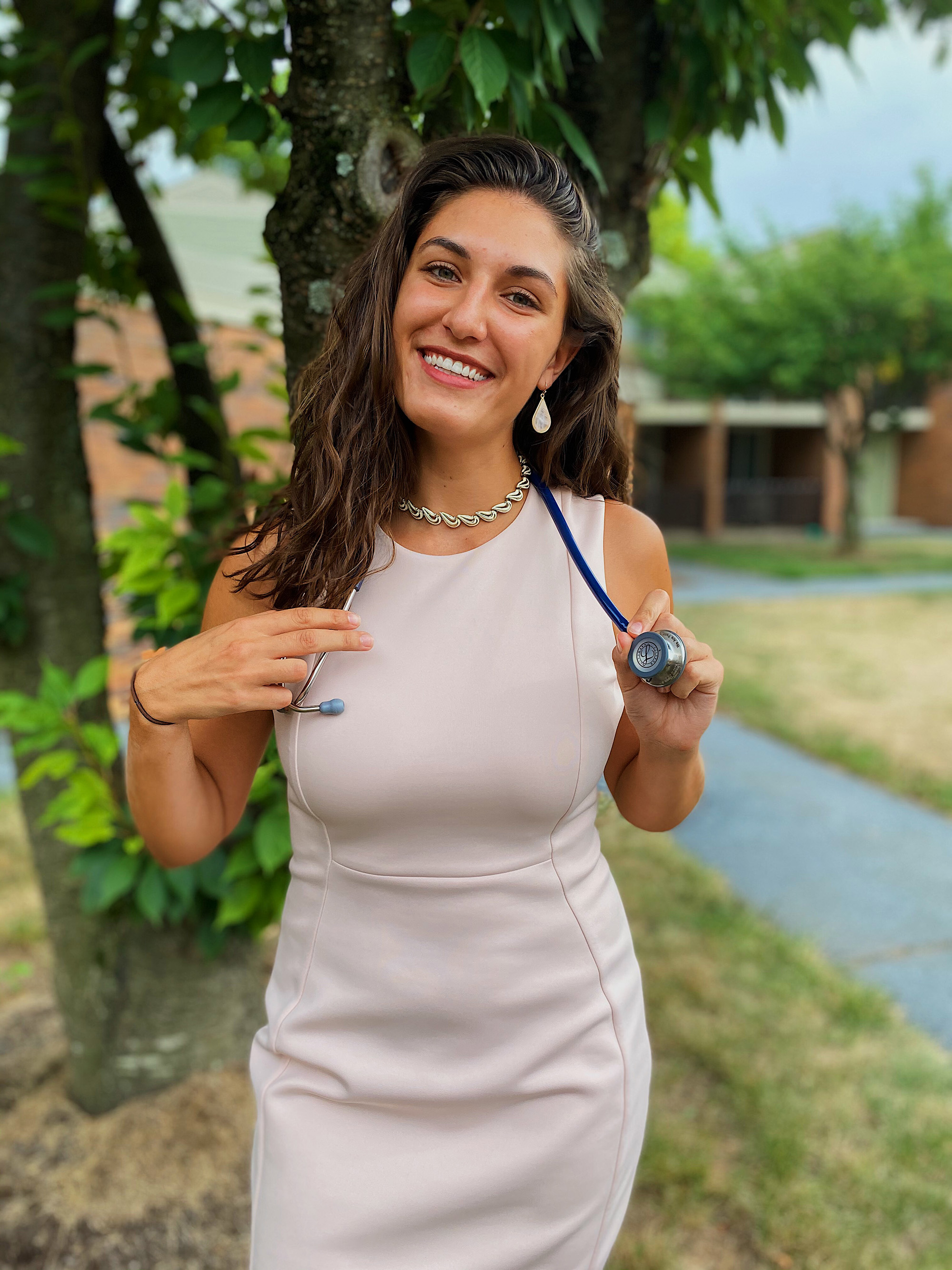What did you enjoy about being a student at Templeton Honors College?
 Gianna Dafflisio ('19)
Gianna Dafflisio ('19)
Major: Biochemistry (Astronomy minor)
Current Job: Medical Student at the Penn State College of Medicine
The most wonderful thing about being a Templeton student is the community that you become a part of. I had never before been surrounded by such a diverse group of people who all shared my same yearning for answering life’s questions. There is something truly special about learning and growing with people (students and faculty alike) who stimulate your desire to question what you had accepted as truth, and then participate in your journey to dive deeper into these topics.
What were some of its best features?
When I was making my college choice, the most influential factor in my decision was sitting in on one of the Templeton classes during a visit to campus. That was my first time experiencing a truly discussion based class, and I was so excited by the idea of learning through conversation. This curricular format truly allows for learning to be a collaborative experience as the thoughts and questions of your fellow students help to shape your own reading of the texts. An equally essential aspect of this classroom environment are the incredible professors who are the backbones that make these classes such a success; and they somehow manage to infuse their expertise into the discussion while still allowing it to be a student lead conversation.
How did Templeton help prepare you for your chosen career path?
In the field of medicine it is very easy to allow science to be the dominant rationale for every medical decision. But my time at Templeton has made it obvious that there is so much more that ought to be considered if I am to be a good care taker of my future patients. A patient’s beliefs, passions, and priorities deserve just as much consideration as their disease, and an effective treatment plan can only be made where all of these areas intersect. Templeton has shown me the importance of caring for and understanding someone’s personhood, and this is precisely what has prepared me to care for and understand the pain and treatment of disease.
How did Templeton help shape you intellectually, personally, or spiritually?
My first two years at Templeton felt like one big popping of a bubble. I came in with ideas and beliefs that I knew were correct, and then soon found out that I did not actually know much at all! But it was so necessary for my truths to get broken down; because when I bent down to pick up the broken pieces, Templeton then helped me look at them and ask three questions: Is this the “capital T” Truth? If not, what is it about this that makes it true for me? And why may other people believe this to be false? I like to ask these three things about everything that is important to who I am, whether that be in my professional, personal, or spiritual life. I try to use these questions as a starting point towards becoming a conscientious member of society, and without Templeton, I would not have the tools to ask these questions in a way that allows for genuine consideration and enriched action.








